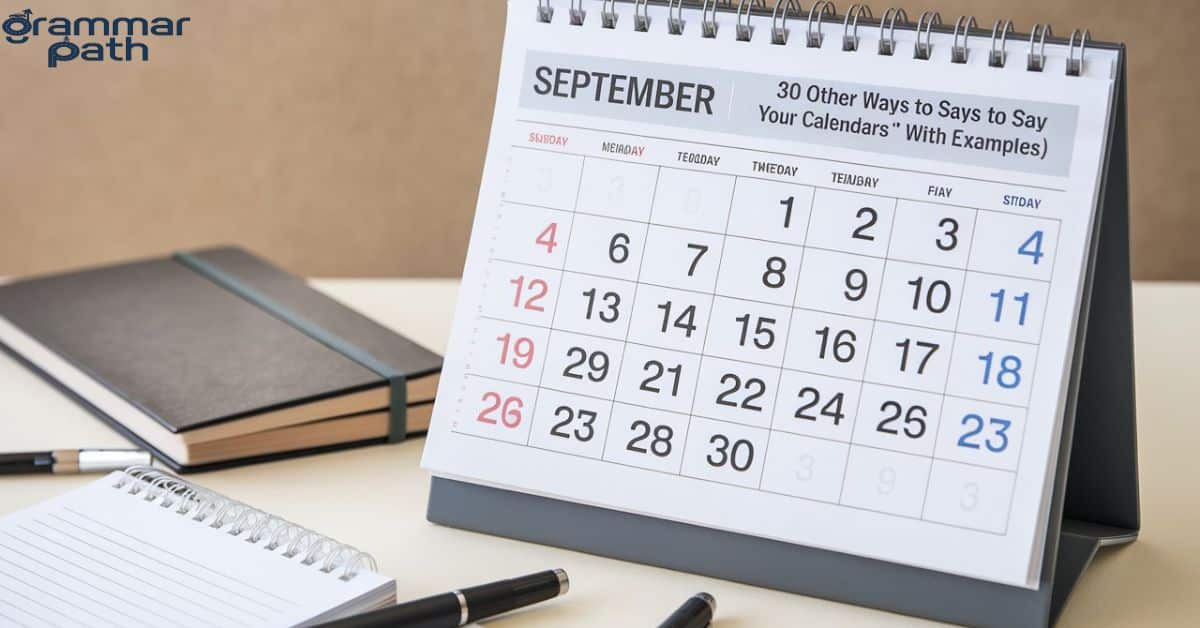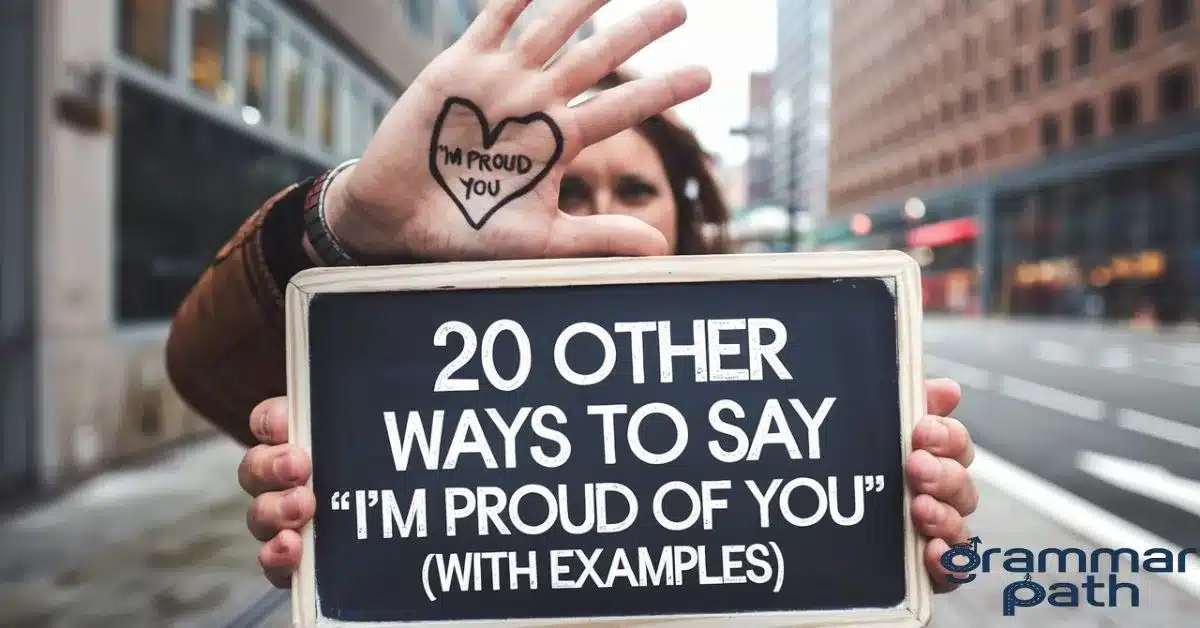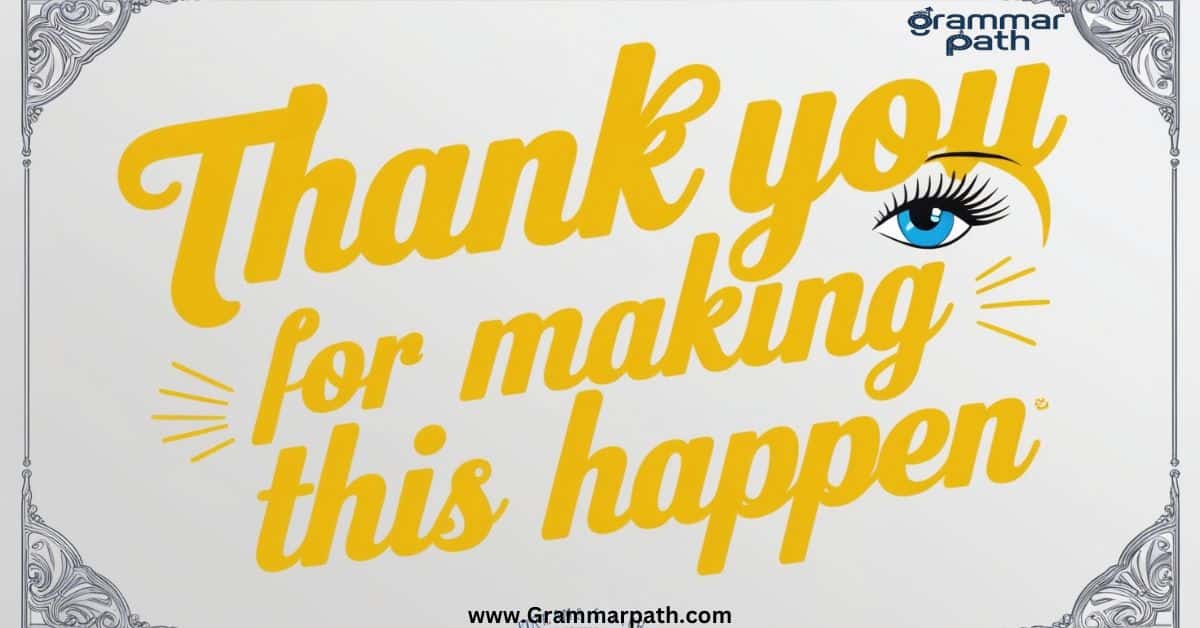
20 Other Ways to Say “Well Noted” in an Email (With Examples)
Email communication plays a crucial role in how we interact professionally, and it’s important to keep our responses varied and engaging. Saying “Well noted” can sometimes come across as repetitive or lacking in tone, especially when you want to convey appreciation or professionalism.
Diversifying email language not only helps you maintain a professional tone, but it also makes your communication more personable and effective. This article will guide you through 20 other ways to say “Well noted” and provide real-life examples that you can apply in your daily electronic mail communication.
To keep your emails professional and engaging, you need to be mindful of how you acknowledge information. Whether it’s to acknowledge someone’s effort or to express understanding, the right words make all the difference. In fact, one of the most important skills in professional interactions is your ability to adapt your language to the context. A simple change in phrasing can significantly improve how you’re perceived by your recipient.
is it Professional to Say: “Well Noted”
While saying “Well noted” is considered professional, it can sometimes come across as too formal or mechanical in certain contexts. In professional settings, it’s important to vary your language to sound more personable and engaged.
Depending on the situation, using alternatives like “Acknowledged,” “Thank you for the update,” or “I’ll take this into consideration” can help maintain a professional tone while making your emails feel more thoughtful and genuine.
What to Say Instead of “Well Noted” in an Email
- Duly Noted
- I’ll Make Sure to Keep This in Mind
- Message Received
- I’ll Take This into Consideration
- I’m Aware of the Situation
- I’ll Take Action on This
- I’ve Logged the Information
- I Appreciate Your Input
- Your Message Has Been Noted
- I’m on It
1. Acknowledged
This is a clean and simple way to acknowledge receipt of information. It’s direct, professional, and leaves no ambiguity about whether you understood the message.
Example:
Subject: Project Deadline Confirmation
“Hi Sarah,
Acknowledged. I’ll make sure we meet the project deadline of October 25th. Thanks for the heads-up.”
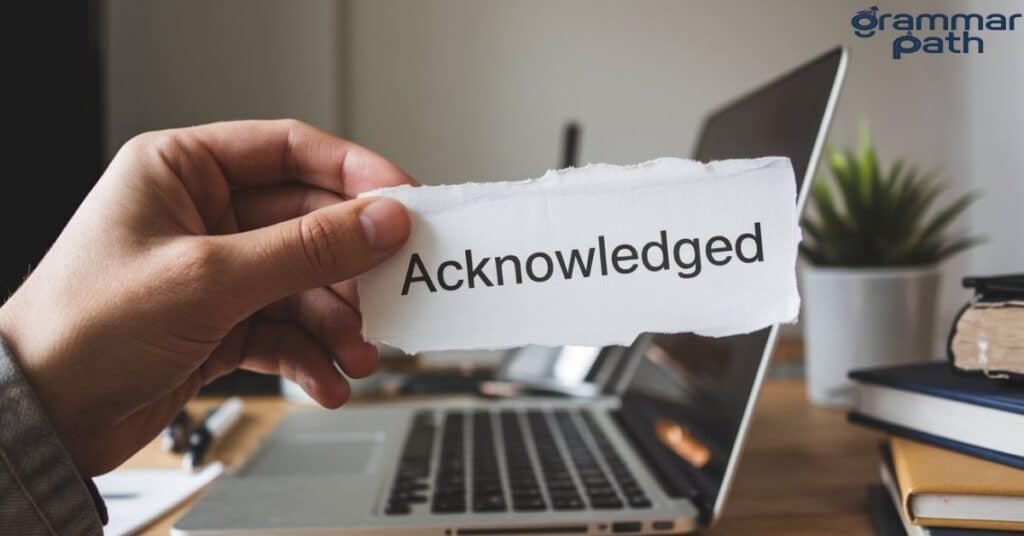
2. I’ve Taken Note of This
Saying you’ve “taken note” gives a bit more weight to your acknowledgment. It conveys that you’re actively recording and paying attention to what’s been said.
Example:
Subject: Revised Budget Details
“Dear John,
I’ve taken note of this, and will ensure the revised budget is reflected in the report.”
3. Thank You for the Update
If someone is providing an update, thanking them not only acknowledges the information but also shows appreciation for their effort. This phrase also helps you acknowledge someone’s effort.
Example:
Subject: Meeting Schedule Change
“Hi Emma,
Thank you for the update. I’ll adjust my calendar to reflect the new meeting time.”
4. Got It, Thanks!
For a more casual but still professional tone, “Got it, thanks!” works well. It shows that you’ve understood the information while keeping the tone light.
Example: Subject: Delivery Confirmation “Hi Mark, Got it, thanks! I’ll be on the lookout for the package when it arrives.”
5. I Will Ensure This Is Addressed
This response communicates that not only have you understood the information, but you’ll also take responsibility to act on it. It’s ideal for situations where follow-up is required.
Example:
Subject: Client Feedback on Presentation
“Hello Team,
I will ensure this is addressed in our next client meeting. Thank you for the feedback.”
6. Thank You for Bringing This to My Attention
This phrase is ideal when someone alerts you to something important. It’s a great way to both acknowledge information and show appreciation for the effort.
Example:
Subject: Error in Quarterly Report
“Dear Tom,
Thank you for bringing this to my attention. I’ll correct the report and send out an updated version.”

7. I’ve Recorded Your Details
If you’re in a situation where you need to keep a record of information, this phrase works well. It assures the sender that their information won’t be overlooked.
Example:
Subject: Contact Information Update
“Hi Jane,
I’ve recorded your details and will make sure the team updates our contact list accordingly.”
8. I Appreciate the Heads-Up
For casual but respectful responses, this phrase works well. It shows appreciation and acknowledges the importance of the information.
Example:
Subject: Office Renovation Schedule
“Hi Sam,
I appreciate the heads-up on the upcoming office renovations. I’ll make sure to plan accordingly.”
9. Understood, I’ll Act Accordingly
This is a professional yet neutral response that shows you’ve processed the information and will take action as necessary. It’s perfect for situations requiring follow-up actions.
Example:
Subject: Policy Change Notification
“Dear Lisa,
Understood, I’ll act accordingly and update the team on this policy change.”
10. Received and Will Proceed as Necessary
This phrase is ideal when you want to convey both receipt of information and the intent to take appropriate action. It strikes a balance between formality and professionalism.
Example: Subject: Product Launch Instructions “Hi James, Received and will proceed as necessary. I’ll ensure all steps are followed for the launch.”
Pro Tip: How to Use These Phrases Effectively
When choosing alternative phrases to “Well noted,” it’s essential to maintain a professional tone while ensuring your response aligns with the context of the message. A great practice is to mix and match these phrases based on the formality of the situation. For example, in more formal interactions, you might want to say, “Thank you for bringing this to my attention,” while in casual settings, “Got it, thanks!” might suffice. Keep in mind that acknowledging information doesn’t have to be dry; show a bit of personality when appropriate.
Scenario Example:
If you’re acknowledging someone’s hard work, rather than just saying “Well noted,” try “Thank you for the update” or “I appreciate the heads-up” to make your response more engaging.
10 More Ways to Say “Well Noted” in an Email
Here are 10 More Ways to Say “Well Noted” in an Email:
11. Duly Noted
A classic, formal phrase, “duly noted” conveys that the information has been received and understood in a professional context. It’s suitable for more formal business emails.
Example:
Subject: Project Timeline Adjustment
“Dear Oliver,
Duly noted. I will adjust the timeline accordingly and keep the team informed.”
12. I’ll Make Sure to Keep This in Mind
This phrase is helpful when you want to let the sender know that you will remember and consider their information for future reference.
Example:
Subject: Potential Client Preferences
“Hi Rachel,
I’ll make sure to keep this in mind for our next meeting with the client. Thanks for sharing the details.”
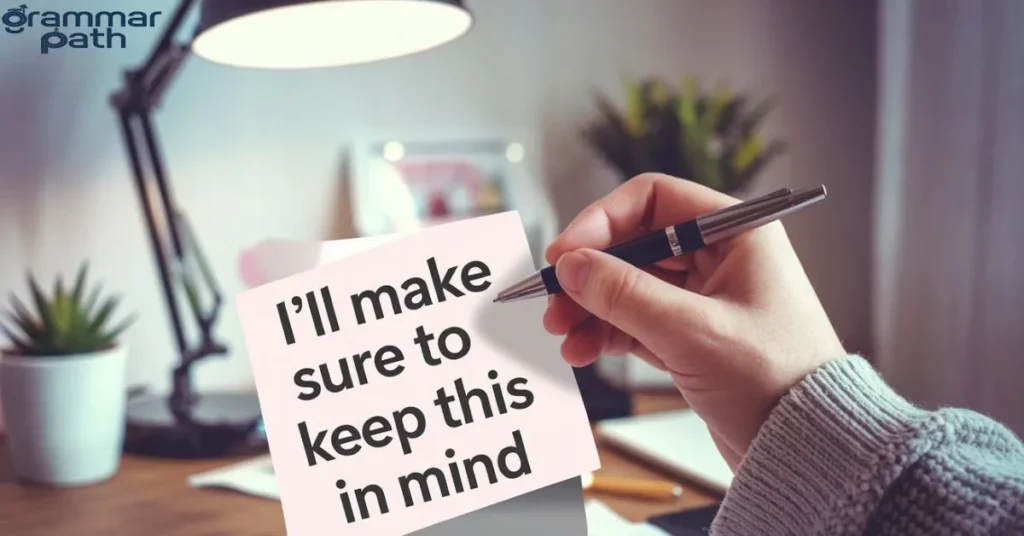
13. Message Received
A straightforward acknowledgment that can be used in informal and formal settings alike, “message received” is a good way to confirm you’ve seen the message without unnecessary formality.
Example:
Subject: Upcoming Event Instructions
“Hi Emma,
Message received. I’ll be sure to follow the instructions you’ve outlined.”
14. I’ll Take This into Consideration
This phrase is perfect for situations where you want to acknowledge the information and assure the sender that you’ll consider it in your decision-making process.
Example: Subject: Marketing Strategy Proposal “Dear Michael, I’ll take this into consideration as we finalize our marketing strategy for next quarter.”
15. I’m Aware of the Situation
If the email informs you of something you were already aware of, this phrase shows that you are up to date while maintaining a professional demeanor.
Example:
Subject: Software Bug Notification
“Hi David,
I’m aware of the situation and have already escalated it to the development team. Thanks for confirming.”
16. I’ll Take Action on This
Use this phrase when you want to acknowledge the message and inform the sender that you’re going to act on it immediately. It’s a great way to combine acknowledge receipt with intent.
Example:
Subject: Urgent Client Request
“Hi Sarah,
I’ll take action on this right away and provide you with an update once completed.”
17. I’ve Logged the Information
For situations where you need to keep a record of the details provided, this phrase works well, especially when dealing with formal processes or records.
Example:
Subject: New Vendor Details
“Dear Rachel,
I’ve logged the information and will update our vendor list accordingly.”
18. I Appreciate Your Input
This is a great alternative when someone offers valuable information or feedback. It acknowledges both the receipt and the effort made by the sender.
Example:
Subject: Feedback on Presentation
“Hi John,
I appreciate your input on the presentation slides. I’ll make the suggested changes before the final version.”
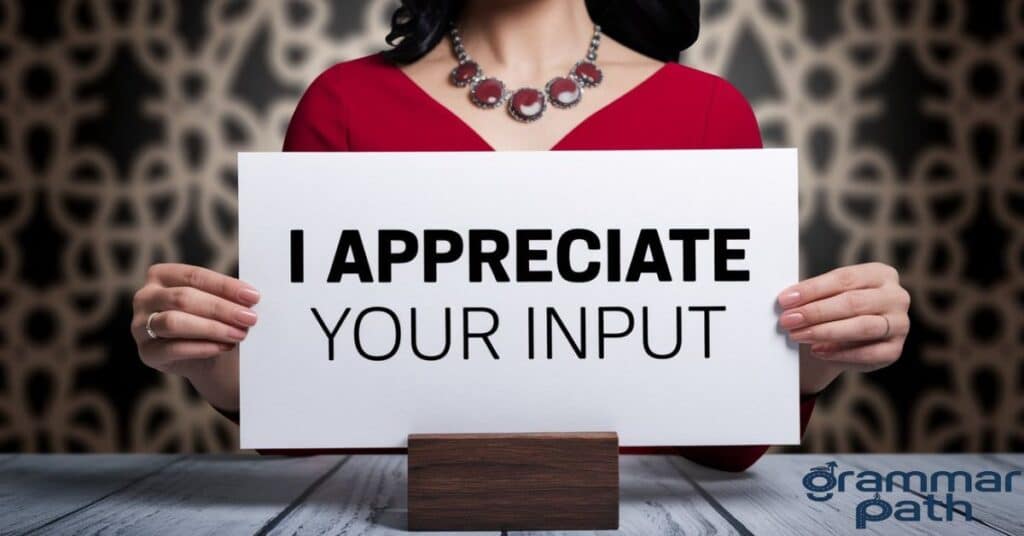
19. Your Message Has Been Noted
A slightly more formal way to acknowledge a message, this phrase is ideal for official or formal correspondences.
Example:
Subject: Departmental Budget Adjustment
“Dear Anna,
Your message has been noted. I’ll review the figures and get back to you with an update.”
20. I’m on It
For casual or internal communication, “I’m on it” is a friendly, confident way to let the sender know you’ve received the message and are already working on it.
Example: Subject: Urgent Design Change Request “Hi Mark, I’m on it. I’ll make the necessary changes and send the updated design later today.”
Pro Tip: Customizing Your Responses
Using these alternative phrases can help you strike the right tone based on your relationship with the recipient and the formality of the situation. For instance, when emailing a colleague or team member, you can be more casual with phrases like “I’m on it” or “Got it, thanks!.”
However, with senior management or external clients, you’ll want to use phrases like “Duly noted” or “I’ll take this into consideration” to maintain a professional tone.
Scenario Example:
In formal communications, avoid overly casual phrases. If your boss emails you about a policy update, saying “Duly noted” shows professionalism, while “I’m on it” might seem too informal for the context.
Conclusion
In conclusion, mastering the art of email communication means knowing when to switch up your responses to avoid repetition and keep things professional. By using these 20 alternative phrases for “Well noted,” you not only broaden your email vocabulary but also ensure your messages are clear, concise, and leave a lasting impression. So the next time you’re drafting an email, try one of these alternatives to maintain a polished yet personal touch in your correspondence.

Emily Olivia is an experienced writer specializing in grammar and English language topics. With a passion for clarity and precision, she shares valuable insights on synonyms, grammar rules, and writing tips to help readers enhance their language skills on Grammar Path.

